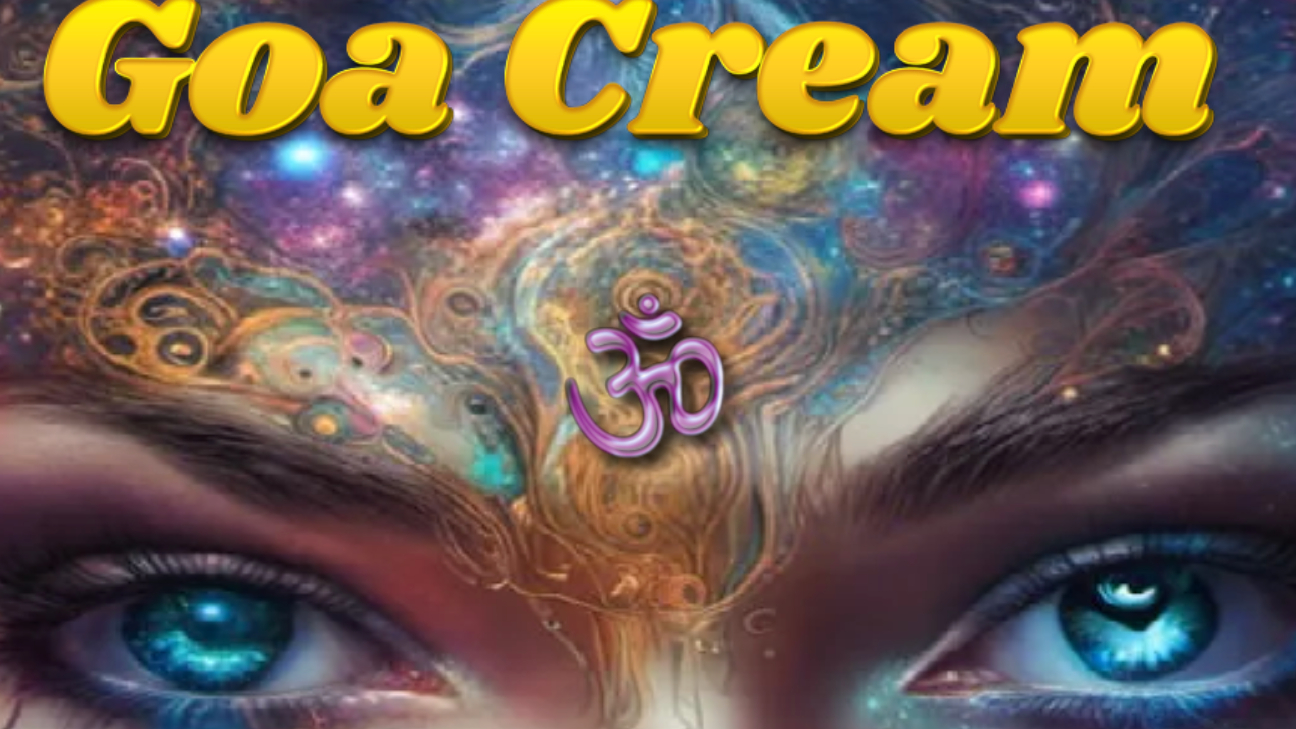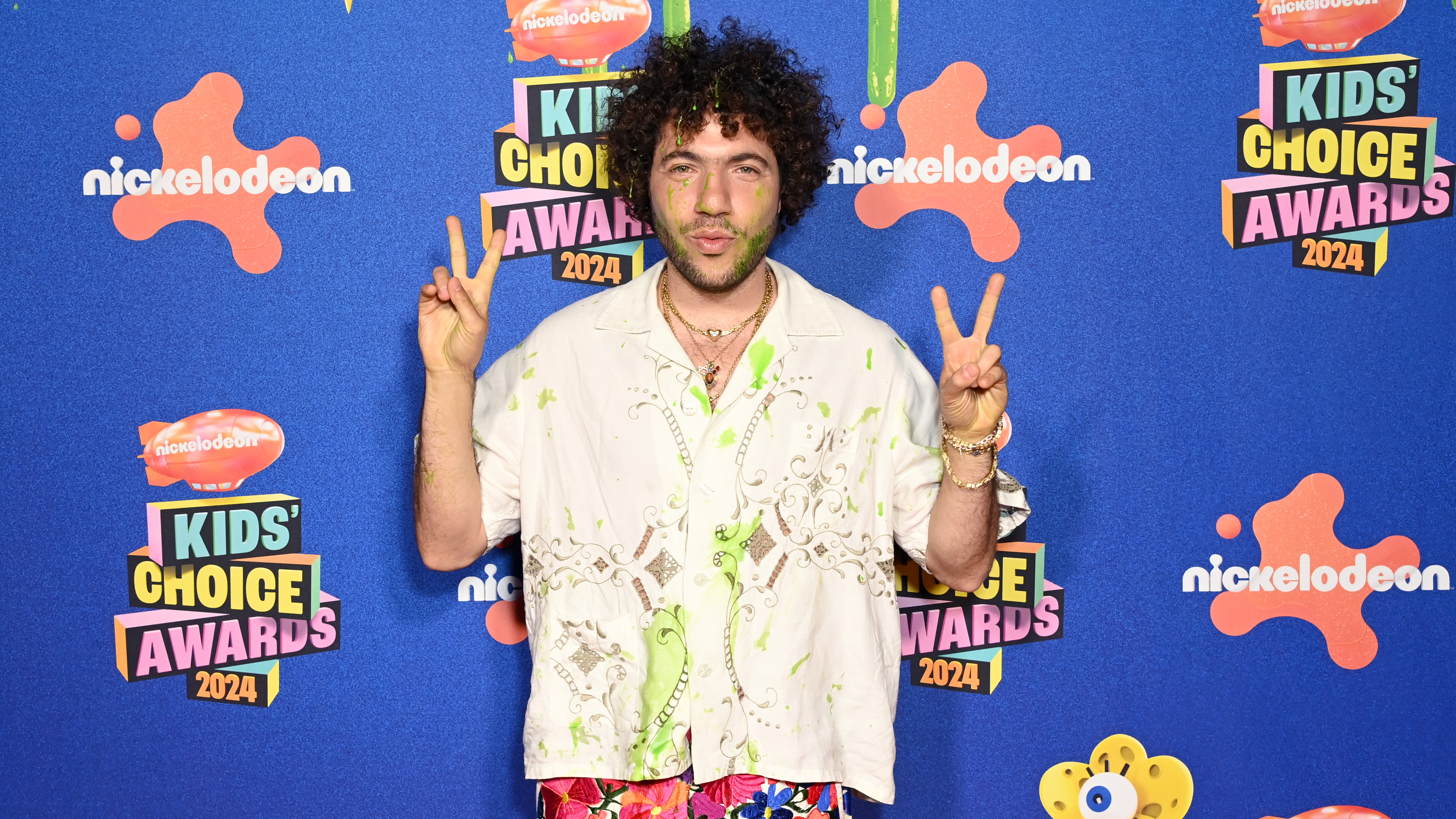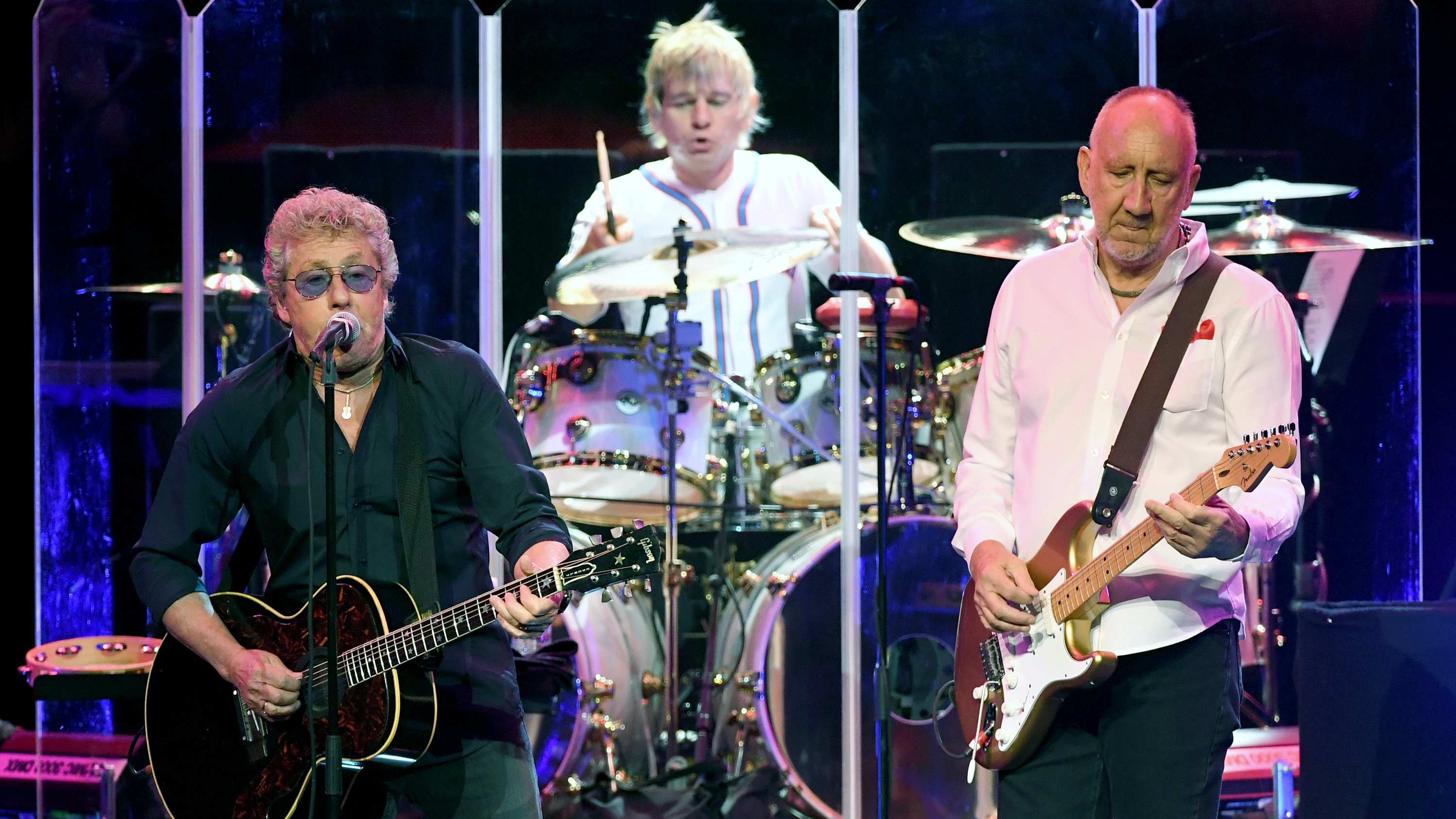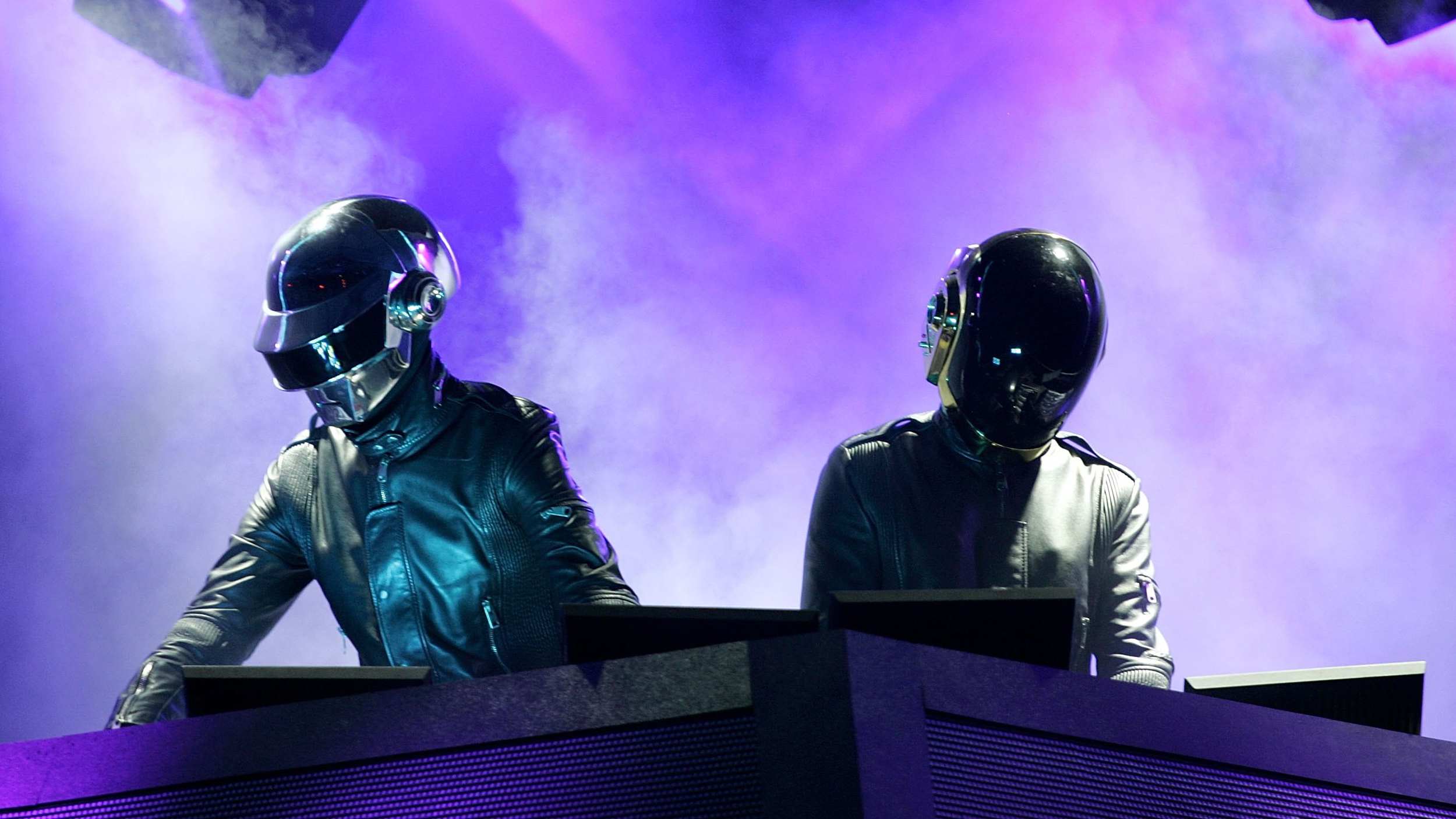"It wasn’t a rip-off!": Who sampled Revolver? The great, good and weird tracks that borrowed from the iconic Beatles album
The Beatles' groundbreaking Revolver influenced a generation of musicians and samplists, from The Jam to The Game
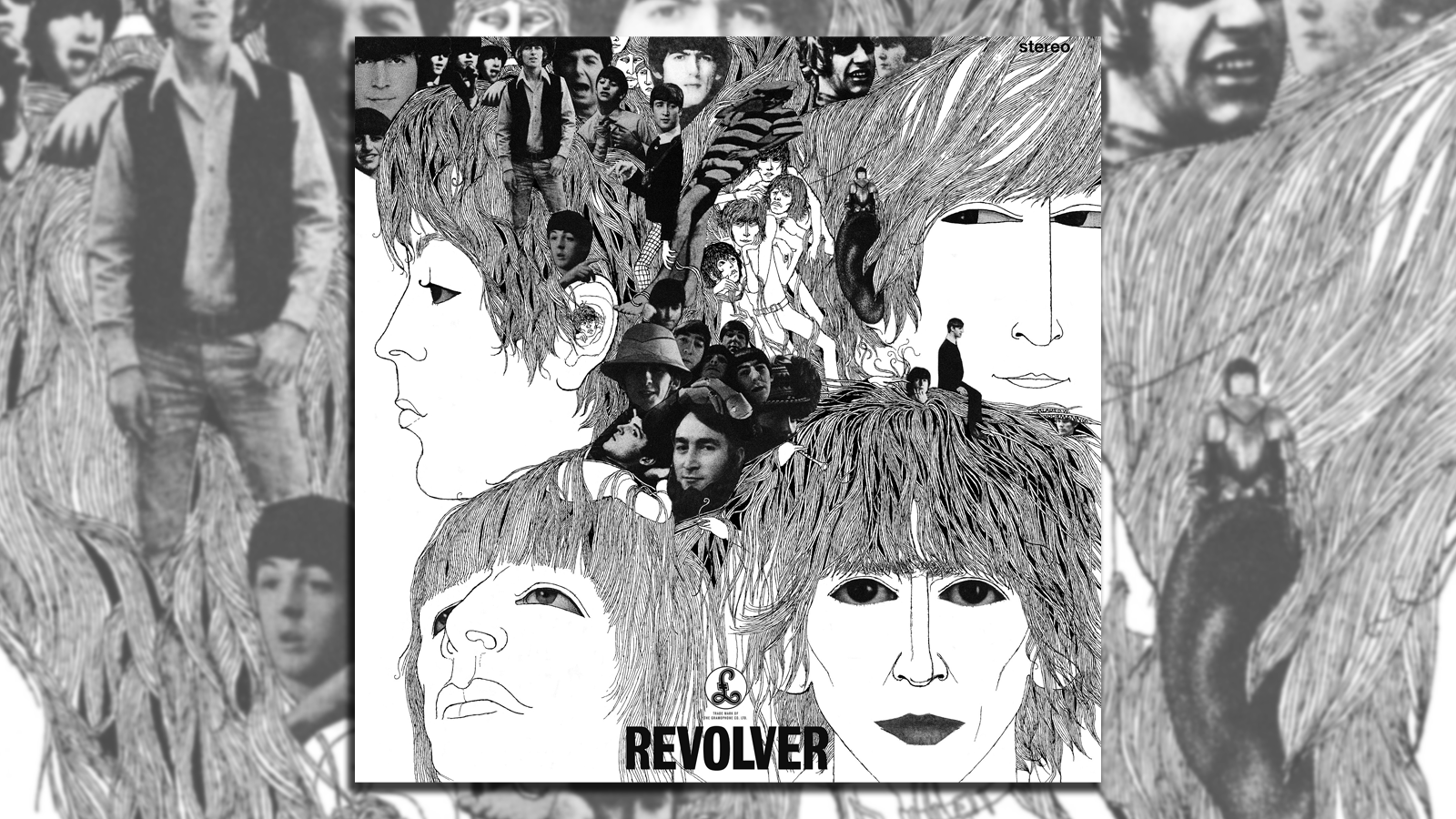
“One thing’s for sure – the next LP is going to be very different,” John Lennon said to NME journalist Chris Hutchins in 1966 about what would turn into the album Revolver.
And while the band hadn't written or recorded anything at that point, he couldn't have been more accurate in his prediction. Revolver turned out to be one of the greatest Beatles albums, which in layman's terms means 'one of the greatest albums by anyone, ever'.
They went on holiday, discovered pot, had all these ideas and just exploded into the studio
Giles Martin
And that has been confirmed not only by the critics and sales of Revolver since its release, but also by the number of people who have used it as inspiration for their own works. It is, according to some stats, the most sampled and covered Beatles album, so is a ripe target for this new series where we look at some of the great audio lifts from the most iconic recorded works in history. But first, some history…
Revolving techniques
Revolver was recorded at Abbey Road between April and June 1966 and was the band's deliberate attempt to move into more experimental recording methods and away from their pop and rock 'n' roll roots.
“Revolver,” Giles Martin told GQ magazine in 2022, “is The Beatles turning [away from] the four-headed beast that wears a suit and has a moptop. They went on holiday, discovered pot, had all these ideas and just exploded into the studio.”
And it was just at a time when studio technology allowed this explosion of ideas to come together. In just one track from the album alone – Tomorrow Never Knows – The Beatles would explore early tape double tracking and flanging effects. But Revolver as a whole broke ground in all sorts of other techniques including tape looping and multitrack recording.
These were perfect effects to mirror The Beatles own experiences with drugs at the time, and not just dope. Acid was a big influence on the sound of Revolver, a recording that Lennon himself would call their "acid album". He even famously borrowed the Tomorrow lyric "turn off your mind, relax, float downstream" from the Timothy Leary book The Psychedelic Experience – see more on this at the bottom of this feature – and those reversed tape loops, treated vocals and multitracked sound effects would become synonymous with psychedelia thanks to Revolver.
Get the MusicRadar Newsletter
Want all the hottest music and gear news, reviews, deals, features and more, direct to your inbox? Sign up here.
So the fact that the album has become one of The Beatles' most sampled is somewhat apt – it was an album that was defined by technology and the next generation of technology gave artists access to the sounds of the album to lift and process.
It's time, then, to celebrate the sounds of Revolver – or at least those purloined by other artists since its release – as we reveal its most sampled tracks and the finest and strangest songs that resulted.
Eleanor Rigby
Eleanor Rigby is, fact fans, one Beatles song on which none of the band played a note but all of them might have contributed to its mournful lyrics. We say 'might' because there have been various accounts of how many Beatles were involved, but we do know the words were not exactly created to put a spring in your step.
The song itself was consciously written to evoke the subject of loneliness
Paul McCartney
"The song itself was consciously written to evoke the subject of loneliness, with the hope that we could get listeners to empathize," Paul told The New Yorker in 2021. "I’d been experimenting with tape loops a lot around this time, using a Brenell reel-to-reel – which I still own – and we were starting to put more experimental elements into our songs. For the first time we were recording songs that couldn’t be replicated onstage – songs like this and Tomorrow Never Knows.”
These are some of the high-profile songs that have used elements of Eleanor.
First up, we think that if you are going to borrow a sample from a high profile band like The Beatles, you might as well do something special with it or just leave it as is. It's an idea that may or may not have crossed The Game's mind when he lifted the main vocal from Eleanor Rigby for his 2009 track Dope Boys, from his third album LAX.
The sample appears at five seconds in, a vastly pitched up version of the original that is then repeated throughout the track. Blink 182's drummer Travis Barker plays on the track, has a writing credit and also appears in the video which can feel like –because it occasionally is – an advert for Dr. Dre's Beats headphones. Right from the start, in fact.
Next up it's one of those 'interpolated' samples we've covered before, which isn't a sample per se, more a re-imagining or reconstruction. In this case it's that 'all the lonely people' lyric re-sung by the sadly departed Sinéad O'Connor which appears at 1:23 of her hard-hitting 1994 track Famine.
Produced by Tim Simenon, this track is from O' Connor's fourth album Universal Mother and, presumably because it lifts the line so directly, Lennon & McCartney get a writing credit on the track.
Ja Rule's Father Forgive me is what some might call a cover version of Eleanor Rigby, as it sounds so close, merely changing those words with "Father Forgive Me". It's from Rule's 2009 album The Mirror and Ja did feel at the time that his version was an updated take on Eleanor Rigby rather than an original work that sampled it. He described at as "very edgy" when he recorded it in 2007.
Taxman
It wasn’t a rip-off. It was just influenced by The Beatles.
Bruce Foxton
Taxman might not be the most sampled Beatles song but its bassline has made waves as being either lifted or recreated across some high profile recordings.
WhoSampled.com claims that The Jam sampled the bass for Start, but we have it on good authority that it's more of a recreation or interpretation – sampling wasn't really 'a thing' in 1980 anyway.
In 2012, The Jam's bassist Bruce Foxton told MusicRadar…
"We were listening a lot to The Beatles’ Revolver album. It wasn’t intentional, but Taxman subconsciously went in and when we came up with the idea for Start that’s what went in. It isn’t exactly the same thankfully, otherwise I’m sure Paul McCartney would have thought about suing us!
"It wasn’t a rip-off and it wasn’t intended that way, it was just influenced by The Beatles."
Here's Start by the Jam. Compare the bassline to that of the original (above).
Meanwhile, David Holmes is well known for his cutting-edge productions and use of sampling, and he is also listed as having sampled Taxman for the track Yen on a Carousel. He produced the track as part of his soundtrack for the film Ocean's Twelve in 2004.
We're not entirely sure it's a sample from The Beatles track, though. For one thing it has extra notes and the original Taxman bassline doesn't lend itself to being sampled – it never appears in isolation. And David Holmes wouldn't have had access to Melodyne back in 2004 to get into the mix and lift it.
So another conclusion could be is that Holmes recreated the bassline or possibly even sampled The Jam's version. Either those or he had a time machine.
Check out the David Holmes track here.
Tomorrow Never Knows
We couldn't think of any more words – we'd said all we wanted to say in two verses.
Paul McCartney
"We couldn't think of any more words – we'd said all we wanted to say in two verses," Paul McCartney said in an interview about Tomorrow Never Knows in 1966. "So we had to work out how to make it different, so I decided to [bring in] some of those loops that I had been doing on my own tape recorder."
So it turns out that the song Tomorrow Never Knows might well have become one of the first great 'technology' songs ever recorded because The Beatles ran out of words.
It's packed with other stuff as well, all helping to make it one of the first songs to truly use the recording studio as an instrument. With those tape loops, Mellotrons, sped up laughing to make seagull noises, drum breaks, vocal double tracking, flanging, and more, Tomorrow… has plenty to tempt the samplists out there.
However, Tomorrow Never Knows has been sampled less than you might think – maybe because it is simply too obvious a target, or getting samples cleared for use is too difficult.
There are some high-profile lifts, though.
Public Enemy didn't get too far through the song before hitting the record button for their 2002 track Psycho Of Greed – it contains the sitar-like sound that comes in at the five second mark on the original. It might well not be the only sample from the track in their song either, as we're pretty sure we can hear some reverse sounds too. But this sound is the only one listed at WhoSampled.com and it is a pretty obvious lift from the start.
The Flaming Lips track Love Yer Brain was the closing song on the band's second album, 1987's Oh My Gawd!!!, so has the band 'winding down' as the track and album closes.
Songfacts.com suggests that you can hear the band start demolishing an old upright piano as a sample of Lennon's 'turn off your mind, relax, float downstream' loops in the background. We're not sure if it's a piano – upright or otherwise – but they seem to be having fun, and the loop is definitely the Tomorrow Never Knows sample.
Now we're not suggesting that The Flaming Lips were influenced by the psychedelic nature of the original Tomorrow Never Knows, nor that there was any drug linkage in the track Love Yer Brain. But frontman Wayne Coyne did go on to form a company called Love Yer Brain that sells cannabis edibles in 2020, featuring products like 'Focus and Rest, adaptogenic mushroom and hemp-infused gummies'.
You can buy Love Yer Brain merch here (and if anyone wants to gift us that kimono, feel free), and here's the original 'adaptogenic free' version of Love Yer Brain (the Tomorrow sample comes in at around 6:40).
In the 1990s UNKLE were in many ways the ultimate sampling band. They used samples from Massive Attack, Björk, Depeche Mode and many others and even once featured the king of sampling, DJ Shadow, in their lineup.
Such was their success back in the day they would attract big name singers – so avoiding the need to sample them – with the likes of Richard Ashcroft, Thom Yorke and Mike D collaborating with them on the album Psyence Fiction.
On that album, the track "Intro (Optional)" would appear on limited edition versions and included samples from – according to WhoSampled.com – some 68 artists including all of the ones mentioned above plus Metallica, Orbital, Air, Nirvana, The Beatles and many (many) more.
Yes, "Intro (Optional)" is either the ultimate sample spotting track or a bit too much of a mish-mash of everything – like UNKLE's sampler hard drive exploded into their DAW.
The Beatles pop in at around 1 minute 50 but don't stay too long at the party – it was a bit too crowded – and you'll be hard pressed hearing them among everyone else. But see if you can spot the other 67 guests…
The best of the rest
As great as Tomorrow Never Knows is, its sample usage seems to be focussed on that sitar-like sound or Lennon's vocal. The Black Dog pick up the former sample at around 4:30 for their track Virtual.
Lastly Chumbawamba are said to have sampled For No One from Revolver for their 1992 track Happiness Is Just A Chant Away from their fifth album Shhh. To us this sound like one of those Interpolation samples. First up the Beatles original and it's the flute/Mellotron style lead sound from 50 seconds that we're focussing on.
And now Happiness Is Just A Chant Away from Chumbawamba – 4:12 in. Sounds recreated to us, not to mention a little synth-like.
Relax and float down stream…
Finally, we can't cover Revolver without including something that it sampled from. OK not sampled as such – sampling didn't exist in 1966 – but as we mention at the top of this feature, The Psychedelic Experience was a book coauthored by Timothy Leary that very much influenced Lennon's lyrics for Tomorrow Never Knows.
A recording of the reading from the book was released as an LP in 1966. Check it out from 4:20 for some recognisable words…


Andy has been writing about music production and technology for 30 years having started out on Music Technology magazine back in 1992. He has edited the magazines Future Music, Keyboard Review, MusicTech and Computer Music, which he helped launch back in 1998. He owns way too many synthesizers.
"At first the tension was unbelievable. Johnny was really cold, Dee Dee was OK but Joey was a sweetheart": The story of the Ramones' recording of Baby I Love You
"Reggae is more freeform than the blues. But more important, reggae is for everyone": Bob Marley and the Wailers' Catch a Fire, track-by-track




